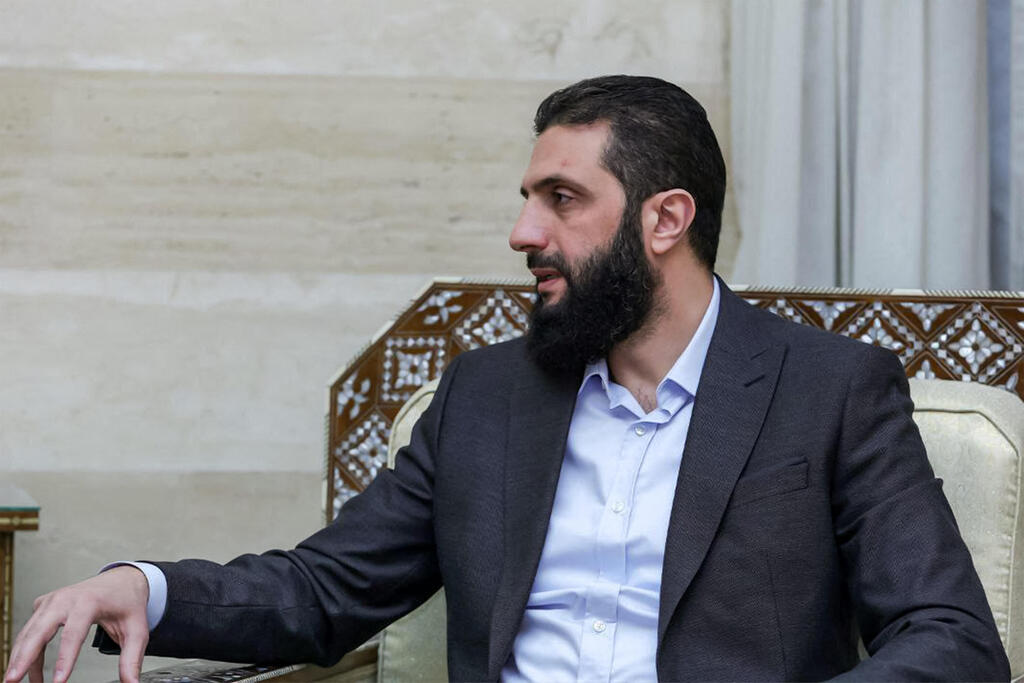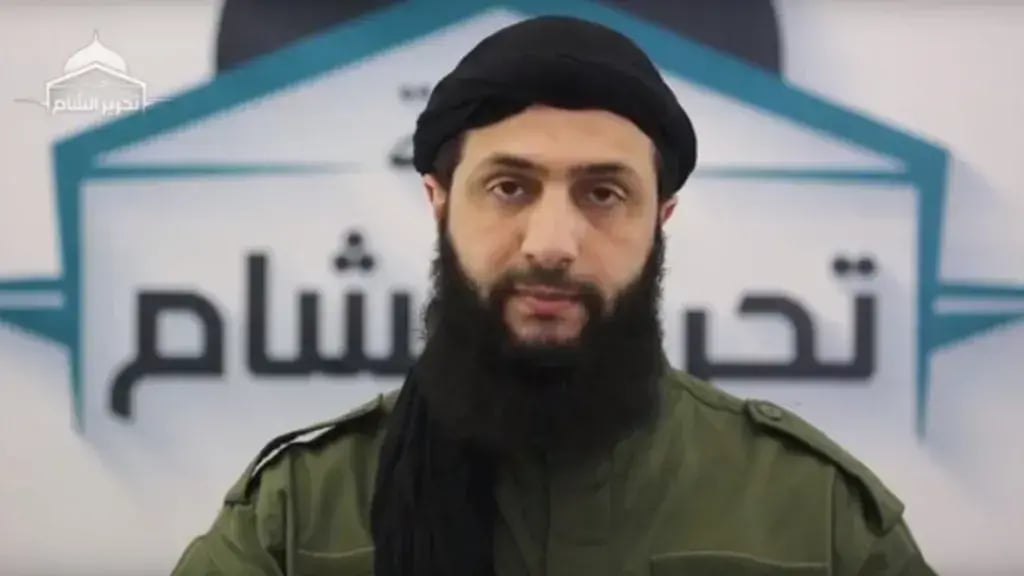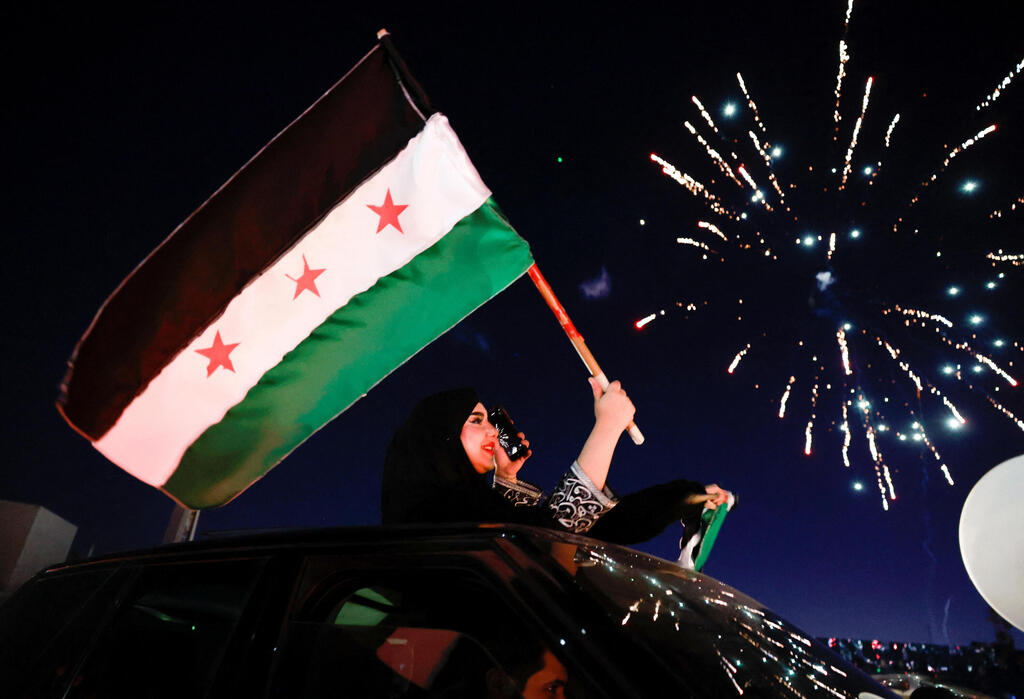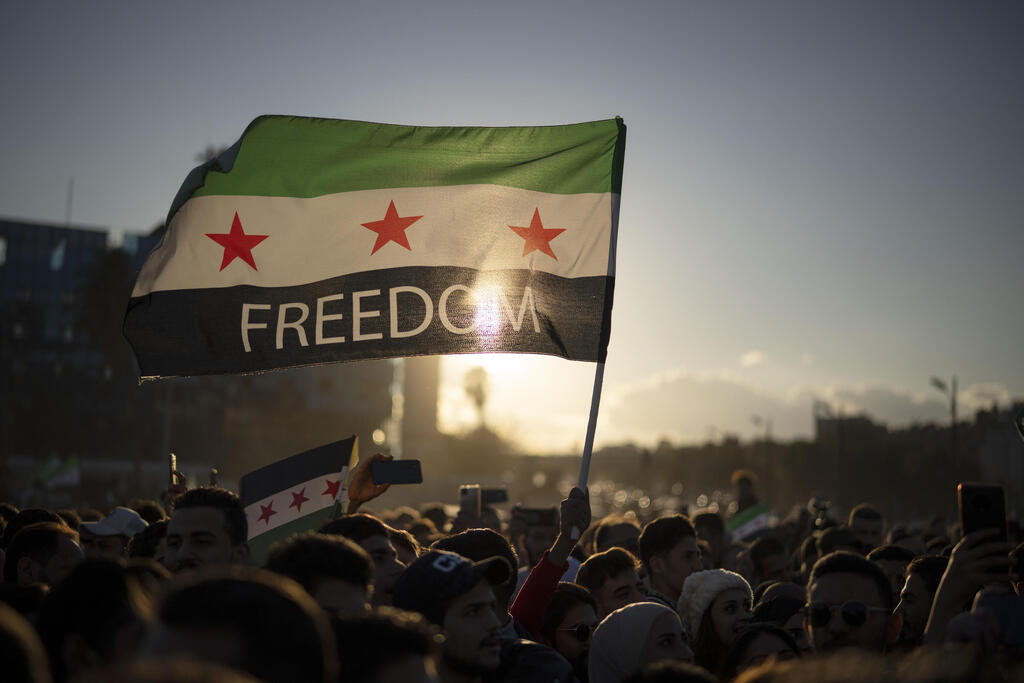Getting your Trinity Audio player ready...
Official Arab responses were cautious after the Syrian opposition factions, headed by Hayat Tahrir al-Sham leader Ahmad al-Sharaa, formerly known as Abu Muhammed al-Golani, announced the formula of "following up on developments in the situation in Damascus and emphasizing standing with the Syrians' choices."
Prevalent in Arab responses were demands, including the start of an integrated political process and warnings against sliding into chaos.
According to experts for The Media Line, ambiguity and uncertainty about the future surround the current Syrian scene. Therefore, the Arab position will not be directed toward anyone specific, and most of it will develop and evolve with time, awaiting more clarity of vision.
The experts also indicate that there are two possible paths for any Arab scenario. The first is supporting institutions and accepting the leaders of the current transitional path, and the second is restoring the Arab presence in Syria while acknowledging the current reality and following up on its developments. This means not leaving political decisions to any non-Arab intervention and freezing decisions regarding Syria’s seat in the Arab League until a new authority arrives or until the current leaders are accepted.
Regarding al-Sharaa’s background, he previously joined al-Qaeda in Iraq shortly before the 2003 U.S. invasion of Iraq and fought for three years in the Iraqi insurgency. After being captured by U.S. forces, he was imprisoned from 2006 to 2011. His release coincided with the Syrian revolution, and he founded Jabhat al-Nusra, the Syrian branch of al-Qaeda, in 2012 with al-Qaeda’s support to participate in the Syrian civil war against Bashar Assad’s government.
As the emir of Jabhat al-Nusra, al-Sharaa built a stronghold in the northwestern Idlib province and opposed ISIS leader Abu Bakr al-Baghdadi’s attempts to merge Nusra into the Islamic State. This disagreement led to open conflict between Nusra and ISIS.
The U.S. State Department designated al-Sharaa a “global terrorist” in May 2013 and four years later announced a $10 million reward for information leading to his capture. He announced in an audio recording on September 28, 2014, that he would “fight the United States and its allies and urged his fighters not to accept Western assistance in their fight against ISIS.”
However, in February 2021, he backed down from threatening the U.S., saying that “Hayat Tahrir al-Sham does not pose any threat to the United States, and the U.S. administration must remove it from its list of terrorist organizations.”
Since his split from al-Qaeda, al-Sharaa also severed ties with Jabhat al-Nusra, merging it with other organizations to form Hayat Tahrir al-Sham in 2017. He then began collecting taxes and providing public services in the Syrian province of Idlib, which he controlled.
The King of Bahrain, Hamad bin Isa Al Khalifa, who also chairs the current session of the Arab League, was the first to send a letter to al-Sharaa, in which he praised "the cooperation of the Presidency of the Syrian Political Affairs Department with the Arab ambassadors residing in Damascus."
King Hamad also stressed in his letter published by the official Bahrain News Agency, "the importance of preserving the sovereignty, stability, safety, and unity of the Syrian Republic, and achieving the aspirations of the Syrian people, and the readiness of the Kingdom of Bahrain to continue consultation and coordination with the Syrian Republic, and to support regional and international organizations to achieve what is in the best interests of the Syrian people."
The Saudi Foreign Ministry published a statement calling on the international community to stand by Syria “without interfering in its internal affairs, and to join efforts to preserve the unity of Syria and the cohesion of its people in a way that protects it from sliding into chaos and division.”
Meanwhile, the Egyptian Foreign Ministry confirmed in an official statement “its support for the Syrian state and people and its support for Syria’s sovereignty.” It also called for “the start of a comprehensive and integrated political process that establishes a new phase of consensus and internal peace.”
5 View gallery


Syrians celebrating toppling of Assad regime in Damascus
(Photo: Aris MESSINIS / AFP)
Qatar’s Foreign Ministry stressed in a statement “the need to preserve national institutions and the unity of the state in a way that prevents it from slipping into chaos, and its firm stand by the Syrian people and their choices."
Jordanian King Abdullah II confirmed in a Royal Court statement that his country "stands by the Syrian brothers and respects their will and choices."
Meanwhile, Foreign Minister Ayman Safadi stressed via a post on X that his country "will provide all possible support to the brotherly Syrian people in their efforts to rebuild their homeland and institutions. It will support any political process launched by the Syrian people to preserve their rights." He also stressed "the need to protect Syria from slipping into chaos."
The pro-Assad Iraqi government confirmed in a statement by its spokesman, Bassem Al-Awadi, that it "is continuing international contacts with brotherly and friendly countries, in order to push efforts toward stability, and preserve security, public order, lives and property for the brotherly Syrian people."
He also stressed "the importance of not interfering in Syria's internal affairs, or supporting one party for the benefit of another," affirming that "intervention will only push the situation in Syria toward more conflict and division, and the first to be harmed will be the Syrian people."
From recent public events, it seems that Syria’s al-Sharaa will not be able to distance himself from those around him who are accused of terrorism. An Egyptian citizen named Mahmoud Fathy, who was convicted of terrorist crimes, including killing the Egyptian Attorney General Hisham Barakat in a bombing on June 29, 2015, has appeared next to al-Sharaa in several recent photos. Fathy is wanted by Egyptian authorities, who consider him an active terrorist according to official statements, and he has had several death sentences issued against him.
Regarding the two options for support that Arab countries foresee for Syria, Egyptian political analyst Dr. Amr Shabaky told The Media Line: “The first is to support institutions and the transitional and peaceful path of power, and the second is to restore Arab presence and not leave it to any non-Arab interventions, including recognition of the reality and dealing with its developments in a way that preserves the stability and safety of Syria and the security of the region."
Shabaky added: "Current indicators indicate that there is an acknowledgment of the Syrians' options regardless of fears of armed factions, which will be dealt with based on practices, and that the most important thing now is to support Syrian institutions to avoid repeating the experience of Iraq and Libya."
Saudi political journalist Khaled Al-Awadi told The Media Line that “the Arab position will remain reserved, but it will not allow any foreign intervention, especially since previous experiences were bad in Libya, Yemen, Iraq, and even Syria.”
Get the Ynetnews app on your smartphone: Google Play: https://bit.ly/4eJ37pE | Apple App Store: https://bit.ly/3ZL7iNv
According to Al-Awadi, “The Arabs will deal according to what these armed factions deal with, and there are questions that cannot be answered at present, related to the strength of the terrorist organization of the Muslim Brotherhood, and the extent to which these armed factions in Hayat Tahrir al-Sham accept other factions such as the SDF and others.”
He argued that no one wants Syria to slide into a civil war again. “This option is frightening for all Arabs, as the Arab countries fear this.”
Jaber Hamoud, a Kuwaiti journalist, told The Media Line: “I expect the Arab position toward Ahmad al-Sharaa to change now in Syria because of the Arabs’ desire for stability in Syria, especially after years of Bashar Assad’s rule.”
Continued Hamoud: “Bashar al-Assad was a criminal, and he did not have a good policy with the Gulf states or all the Arab states, so his fall will not represent anything important. The most important thing is that the future in Syria will be better than its predecessor.”
Hamoud doesn’t expect violent conflicts inside Syria, “as the Sunnis constitute about 90% of the population, and the Alawites hate Bashar Assad, and everyone is tired of the war that lasted 13 years and wants peace.”
According to Jordanian journalist Mohammad Al-Jousi, the Arab countries have been and continue to stand by the Syrian people since 2011 and after the beginning of the Syrian refugee crisis in many Arab countries. “After the fall of the Syrian regime, the Arab countries are now concerned with the return of security and stability to Syria, and that events be contained quickly by holding transitional presidential elections, for a period filled with hope for stability,” he told The Media Line.
Al-Jousi continued: “With the stabilization of the situation, attention will turn to the return of refugees and the reconstruction of Syria, as the greatest burden will be on the neighboring countries that hosted the refugees, which requires them to play a role in facilitating their return.”
“The Arab role will focus on unifying the Syrian opposition and presenting a roadmap for a political solution, as any internal division may open the way for foreign powers to enhance their influence,” he added.
Mohammed Al-Rawi, an Iraqi political analyst, told The Media Line: “Currently, we see it as natural for Arab countries to freeze Syria’s seat in the Arab League and for the seat to remain vacant until a president is officially elected for Syria, which could last a whole year.”
According to Al-Rawi, Al-Sharaa will be eliminated soon, and a new face will appear on the scene, and the Arabs will deal with him. However, if Al-Sharaa is killed, “there will be major clashes between the armed factions, each of which will accuse the other of being behind his assassination,” he cautioned.
Meanwhile, for the Gulf states, Saudi political analyst Jassim Al-Saeedi told The Media Line that “the most important thing is that the government is not affiliated with the Muslim Brotherhood and that those accused of terrorism are not in power in Syria.”
He continued: “If there are actually civil elections, a political vision, and a new constitution elected by the Syrian people, all Arab states, including the Gulf states, will stand by Syria. In any other case, there will be no support.”






